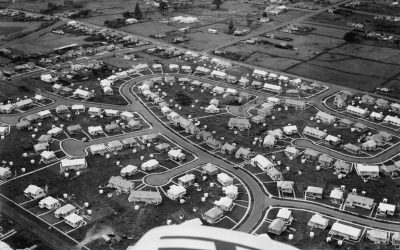| EXECUTIVE SUMMARYThis backgrounder explores the hypothesis that the value of residential property reflects the rate of economic growth; and that slow growth implies low demand and lower house prices.
Over the period 1986 to 2000, Winnipeg homes averaged an increase in price of 23.6%, compared to faster growing cities like Calgary (125.2%), Vancouver (166.5%) and Toronto (91.8%). With the consumer price index increasing by 46% over that period, an investment in Winnipeg housing during this period generated a negative return of almost 23%. While some policy makers have been tempted to portray Winnipeg’s low housing prices as a positive for the economy, low values can also be seen as a symptom of soft demand in a slowly growing economy. Several indicators connect the slow rise in Winnipeg home prices and the associated loss of wealth by residential property owners with Manitoba’s relative lack of economic growth. Over the same 16 years, Manitoba had the lowest increase in GDP among the Western provinces, a minimal increase in the value of building permits and a marginal increase in the size of its labour force. A comparatively weak housing market has serious consequences for the broader economy. It translates into falling wealth for all property owners, but especially for vulnerable groups like seniors, who hold most of their net worth in their homes. Low house prices accelerate dependency on government for many seniors, as the value of their assets are exhausted over time. Reversing a policy environment responsible for depreciating the wealth of Winnipeg homeowners is a complicated task. Winnipeg’s relative decline in economic importance speaks to the depth of the problem. The city was the largest urban centre in the Canadian West and the third largest Canadian city earlier last century. Today it is the fourth largest Western city and the eighth largest city in Canada. The correlation between housing prices and the rate of economic expansion indicates that policies that promote higher rates of growth must form part of the solution. More competitive provincial tax policies to attract investment and jobs, sharply lower property taxes, including an end to funding education with property tax, and aggressive promotion of immigration would provide the growth needed to support higher demand and prices for housing in Winnipeg. Read Pdf – |


